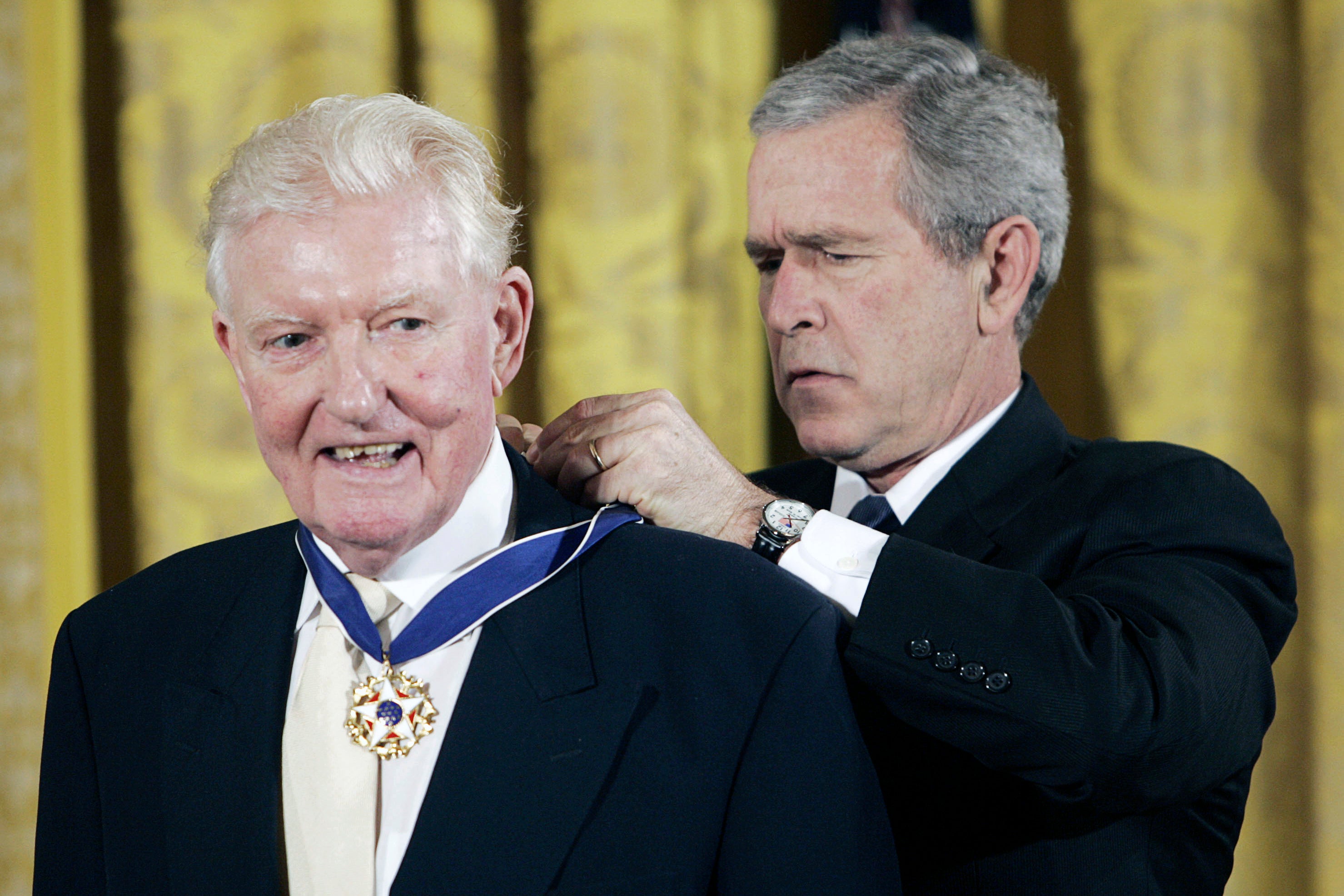Paul Johnson, UK historian and champion of Thatcher, dies
British author, historian and journalist Paul Johnson, who shifted his allegiances from the left to support Margaret Thatcher and Conservative causes, has died after a long illness, his son has announced on social media

Your support helps us to tell the story
From reproductive rights to climate change to Big Tech, The Independent is on the ground when the story is developing. Whether it's investigating the financials of Elon Musk's pro-Trump PAC or producing our latest documentary, 'The A Word', which shines a light on the American women fighting for reproductive rights, we know how important it is to parse out the facts from the messaging.
At such a critical moment in US history, we need reporters on the ground. Your donation allows us to keep sending journalists to speak to both sides of the story.
The Independent is trusted by Americans across the entire political spectrum. And unlike many other quality news outlets, we choose not to lock Americans out of our reporting and analysis with paywalls. We believe quality journalism should be available to everyone, paid for by those who can afford it.
Your support makes all the difference.British author, historian and journalist Paul Johnson, who shifted his allegiances from the left to support Margaret Thatcher and Conservative causes, died Thursday after a long illness, his son announced on social media. He was 94.
A prolific writer, Johnson produced more than 50 books and numerous articles spanning history, biography and travel. Writing more for the public than the critics, his subjects ranged from Jesus to the Beatles, with his titles including “The Birth of the Modern: World Society 1815-1830,’’ “A History of the Modern World from 1917 to the 1980s,’’ and “The Quest for God: A Personal Pilgrimage.’’
Born Nov. 2, 1928, in Manchester, England, Johnson was educated at Stonyhurst College, a Jesuit primary and secondary school, and the University of Oxford, where he met Thatcher and studied under the left-wing historian and journalist A.J.P. Taylor.
After graduating, Johnson served in the British Army, based mainly in Gibraltar. His military service helped him get a job at the Paris periodical “Realites’’ and he was later named Paris correspondent for the New Statesman, a British current affairs magazine. Johnson continued to work for the magazine when he returned to London and served as its editor from 1965 to 1970.
During the 1970s Johnson became increasingly conservative in his outlook, and began to advocate Thatcher’s message of less government and less taxation.
“In the 1970s Britain was on its knees. The Left had no answers,’’ Johnson wrote on his website as he explained his decision. “I became disgusted by the over-powerful trade unions which were destroying Britain.”
After Thatcher was elected prime minister in 1979, he offered advice on legislation limiting the power of trade unions and became one of her speechwriters.
“I was instantly drawn to her,” Johnson recalled.
Johnson’s views were sometimes controversial, as when he put Lee Kwan Yew, the founder of modern Singapore, on top of his list of the 20th century’s greatest political figures. Lee turned Singapore into one of the world’s “richest, safest, most orderly and sensible countries,” Johnson wrote, ignoring those who criticized him as a tyrant who arbitrarily detained opponents. On the same list, Johnson dismissed Nelson Mandela “under whose timid rule South Africa went straight for the rocks.”
That list appeared in the column Johnson wrote for The Spectator, a conservative British publication focused on politics and culture, from 1981 to 2009. He also wrote a column for the Daily Mail, a traditional backer of Britain’s Conservative party, until 2001.
An anti-communist, he found Richard Nixon’s behavior in the Watergate scandal less objectionable that Bill Clinton’s alleged perjury following allegations about his relationship with a White House intern.
But his conservative politics won him fans on the American right. President George W. Bush awarded Johnson the Presidential Medal of Freedom in 2006, saying his “powerful writings have captivated and educated people around the world.”
“A citizen of the United Kingdom, he holds America in special regard, calling the creation of our Nation ‘the greatest of all human adventures,’” Bush said.